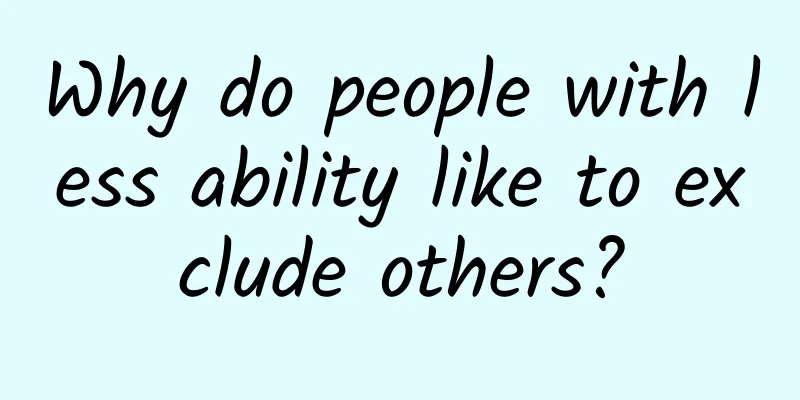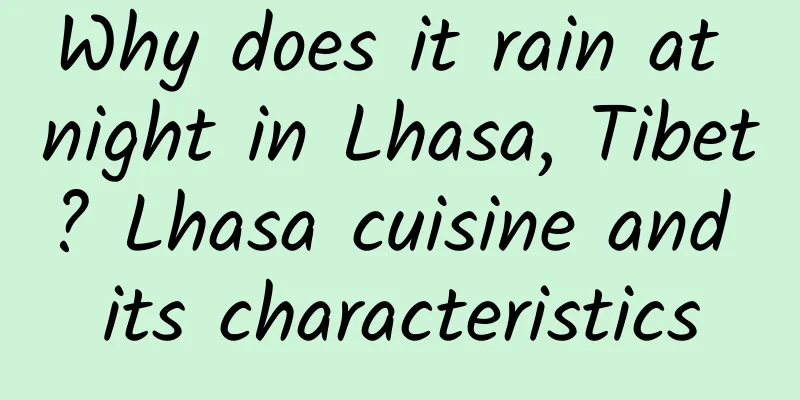Why do people with less ability like to exclude others?

|
There is a saying that goes "The tallest tree catches the most wind", and many people agree with this and think that if they are too outstanding, they will eventually be slandered. Is this really the case in real life? Do people really prefer to see those who are excellent make fools of themselves? Recently, scientists did some research and concluded: Hey, this is really the case! The less capable The more you like to stick together and exclude others Elizabeth Campbell, assistant professor at the University of Minnesota, Liao Hui, professor at the University of Maryland, and others conducted a survey of 350 barbers in 105 hair salons in Taiwan and found that those barbers with outstanding performance were always subject to harsh treatment and exclusion from their peers. In the eyes of researchers, hair salons represent a very common form of cooperation. In such a work environment, hairdressers must work independently and also divide the work and cooperate to complete the task. In this way, the study of hair salons will help people understand the cooperation mode of similar "workgroup" teams in society. Elizabeth found that barbers tend to be more tolerant of colleagues with lower levels of skills, but are extremely harsh and strict with the best in the industry. Interestingly, Elizabeth also found that this tendency is more obvious in the more cooperative barber teams. It seems that "excluding the best" has become the glue that makes the team more united. Exclude you It's to protect myself As early as 2010, Lamar Pierce and Francesca Gino of Washington University in St. Louis conducted such a survey, and they observed that automobile quality inspectors also had similar "double standards". Their job is to test the emission data of the car and judge whether it is qualified. Lamar found that this kind of black-and-white problem can also cause quality inspectors to "treat differently" - he found that quality inspectors would be particularly "lenient" to people with similar income groups as themselves, allowing their cars to barely pass. However, when it comes to cars from the wealthy, they will be particularly strict. For Lamar's study, the inspectors' envy of luxury car buyers and empathy for regular car buyers are the most obvious explanations for their behavior. People sympathize with groups that are similar to themselves in rank, and resent those who have more social resources. However, this is not easy to explain Elizabeth's research on the barber industry - you may have reason to envy those colleagues who perform well, but sympathize with those colleagues who are lazy and eat nothing? No way. What's more, their performance can affect your salary. So why did people have similar reactions in scenarios different from Lamar's experiment? In order to further explain the psychological motivations of this group of people, Elizabeth's team conducted another experiment in the United States after completing the investigation of hair salons. In this experiment covering 284 business teams, team members will compete with the "messenger" sent by researchers in a specific task - an employee disguised as a computer. Needless to say, it is difficult for people to compete with this special employee. So, how will they react? Elizabeth found that when they had to beat the computer to get the benefits, they became jealous and excluded this "employee". If everyone can get a good reward by working together, people will welcome this "excellent employee" who has never met. Based on this, Elizabeth proposed a new hypothesis, which is about resource allocation: in a competitive environment with limited resources, those who work better will have the opportunity to obtain the most resources, which will significantly limit the living standards of those who are lagging behind. In order to protect their own interests, the laggards must form an alliance and use some "out-of-the-box tricks" to restrict the strong, and finally compromise the interests obtained by everyone to a point acceptable to both parties. Don't underestimate these exclusions The consequences are serious Never underestimate the discordant notes generated within a group. Scientists have found that when jealousy spreads within a group, the entire team will be adversely affected. Jealousy can significantly reduce the work performance of the entire team, including those who are excellent, cause more employee absenteeism, and require employees to spend extra time dealing with social distress... It can also disintegrate the team from within, ultimately causing more far-reaching effects. According to research, jealous people remember fabricated stories that discredit superior people better than ordinary people. This exceptional memory is due to their attention to superior people. This extra attention consumes people's already very limited cognitive resources, which on the one hand will cause people's memory bias, and on the other hand will damage people's performance on "serious matters". Can we change it? The Envied If you are a star in a team, you should realize that you will be envied sooner or later. So when this happens, don't be too surprised and at a loss. Instead of repeatedly asking "Why do they have to hate me", it is better to take some practical solutions. If you believe in Elizabeth's hypothesis, then you might as well try to adopt more cooperative ways to achieve win-win results with everyone. If people get more benefits from cooperating with you, most people will not mind you taking more. If you are unlucky enough to be the underachiever who is infinitely hostile to the leader in the team, then maybe you should reflect on yourself - not only why your work ability is so limited, but more importantly, you should realize that this negative emotion will not only be meaningless, but will further damage your work ability. Try to cooperate with the strong and stay away from your negative emotions, which will bring you more benefits than sitting at your workstation and gossiping and slandering. Managers Finally, if you are a manager of a company or team, when you realize that such emotions are emerging in the team, you should consider more. You have provided better compensation for those excellent employees, so naturally they will have higher expectations. If they are restricted by the pressure from their colleagues and cannot fully exert their abilities, it will constitute a waste of resources. Therefore, it is necessary for employers to take measures to ensure that their expenses are not in vain. Formulating a series of rules to protect excellent employees from stress is one way. A smarter approach is for employers to make those lagging employees realize that cooperating and sharing with excellent employees will help them improve their ability to obtain resources more than blindly excluding and restricting them. Establishing a benign interaction will be of great benefit to both parties. More importantly, you should be aware of this problem early on - when people start to isolate your employees, when they start to have more unnecessary dissatisfaction and disputes, you should take action. If you let it go, don't be surprised why your team quickly falls apart~ Human hearts are so complicated! Author: S.Silvisier |
>>: To prevent diabetic neuropathy, can methylcobalamin and vitamin B12 replace each other?
Recommend
My breasts are softer than usual. Is this because I'm pregnant?
Many women have small breasts, so they want them ...
What color is false menstruation?
Normal mature women will face menstruation every ...
How many weeks of pregnancy is it better to create a record
In some big city obstetrics and gynecology hospit...
What is the broad ligament of the uterus
The broad ligament of the uterus is a type of ute...
What is the effect of Baofu Kangquan
What are the actual effects of Baofukang Supposit...
Can pregnant women with anemia eat donkey-hide gelatin?
We all know that donkey-hide gelatin has the effe...
What will happen if long-term gynecological diseases are not treated?
Many women have some gynecological diseases, but ...
Turbid amniotic fluid picture
Amniotic fluid refers to the fluid in the amnioti...
How to self-test the patency of the fallopian tubes
If both sides of the fallopian tubes are unobstru...
Is it normal for the fetus to move sometimes actively and sometimes not at all during the 4th month of pregnancy? What is the fetal movement like during the 4th month of pregnancy?
We all know that when a woman is pregnant to a ce...
Ectopic pregnancy laparotomy two months pregnant
Pregnancy is a process that all women will go thr...
Gestational sac implantation time
When most people are preparing for pregnancy, the...
The most easily overlooked B vitamins are actually related to the health of the whole body
Author: Zhang Yu, researcher at Chinese Center fo...
Small breasts mean longer life. Uncover the secrets of women's breast health
People think that women with full breasts are mor...
Complete list of suppositories for bacterial vaginitis
There are many types of vaginitis, bacterial vagi...









